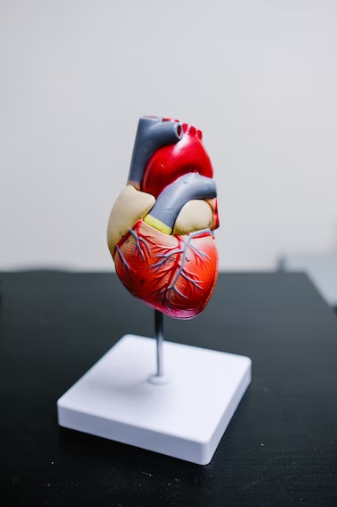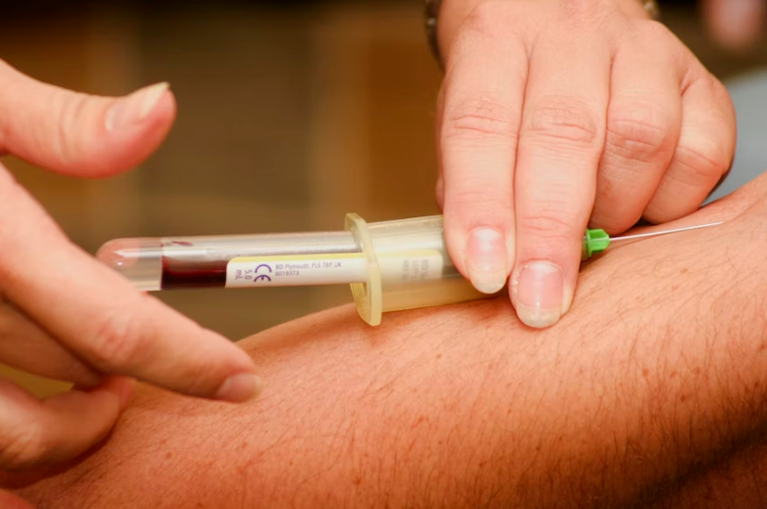Effects of High Cholesterol and How to Deal With It
Everybody's heard of cholesterol. It's notorious for forcing people to give up fried and salty foods, but there's more to avoiding it than eating salads. If you discover that you have high cholesterol, you should know that you have options when it comes to management.

An internal medicine doctor can identify the root of the problem and tell you what you need to change and how much. Elevated levels of cholesterol aren't usually a huge health risk unless they go untreated. When you see a doctor and follow their instructions, you can mitigate the damage to your body.
That's why at TelMDCare, we make it easy for you to speak to a telemedicine doctor online. So without you having to wait on hold to schedule an appointment and then fit it into your schedule, you can get treatment anywhere! You can book online, but if you'd like to speak to us, you can call us at +1-800-230-2050. Our virtual doctor can treat sexually transmitted diseases (STI), strep throat, and more.
What Is Cholesterol?
First things first, you should know that cholesterol isn't a bad thing. We all have it in our bodies. It's only when it's too high or too low. The body needs a certain amount, which is why along with the food we ingest, it also comes from our liver.
However, this doesn't mean you need to worry about incorporating it into your diet. Barring a medical problem, the liver will produce enough to support normal bodily functions. You may also have heard of "good cholesterol" and "bad cholesterol".
All that you need to know about that is that the former travels to your liver, where it can be removed from the body with other toxins. The latter goes directly to your arteries.
Cholesterol in the arteries means plaque in the arteries. If you've ever had a dental infection, your dentist may have mentioned a plaque buildup. It's a soft, almost fluid substance that adheres to teeth and artery walls, and solidifies into a hard and porous layer over time. Once it's formed, it can't be removed.
How High Cholesterol Affects The Body
As cholesterol builds in the arteries, the lumen (the channel in the blood vessel) narrows because of the layer of plaque, and cholesterol deposits lining it. While there are several adverse effects on the overall health, a blood test is the only way to determine if you have it.

However, some of the following could be signed that you should ask your primary doctor to recommend testing:
- Unusually high blood pressure
- Recurring chest pain
- Experiencing pain while walking
- Erectile dysfunction
- Unexplained nausea/vomiting
- Muscle cramps
- Fatigue
Even if you're experiencing none of the above, it's not a sure sign that your cholesterol is fine. It's better to see a family practice doctor sooner than an urgent care doctor later. In the later stages, the untreated build-up can lead to the following:
- Angina
- Heart attacks
- Strokes
Why Does It Happen?
As aforementioned, diet is one of the most reputed culprits. However, faithfully following dietary guides doesn't necessarily mean you don't need to worry. Here are some non-food-related causes:
- Genetics
- Obesity
- Smoking or secondhand smoking
- Alcoholism
- Inactivity
Most of the above can be avoided, but if the cause is genetics, you'll have to actively keep tabs on your cholesterol levels and avoid partaking in anything that could increase the risk. If you find a pattern in your family history, speak to a doctor online to ask your medical questions. Be sure to follow the treatment plan they recommend.
Obesity, which you may think is food-related, can be due to a medical condition. Regardless of the cause, it's something that puts you at risk.
Can I Fix It Without Medical Care?
You may be able to avoid building up your cholesterol, but once it's happened, regardless of the reason, you need a treatment plan made by an internal medicine doctor. You can make changes to your lifestyle to avoid further buildup, but you also need medical damage control.
Your doctor will find out if your elevated levels are caused by genetics or your lifestyle. In the case of the former, they'll be able to tell you exactly what's missing. In both cases, they'll also be able to see how far the situation has progressed and monitor it in the future.
Furthermore, they'll be able to help you foresee and manage symptoms. So the next time you experience motion sickness, you'll know to mention it. Since in men's health, erectile dysfunction has been linked to too much cholesterol, it's important to avoid taking sildenafil citrate (viagra). If you do experience the problem, make sure your erectile dysfunction treatment plan is safe for you.
Lastly, it's important to remember that consulting a general practitioner can never hurt. We know that living a busy life makes it hard to take out time for hobbies and self-care, and taking time out to seek medical help and organize travel makes it harder. Unfortunately, elevated cholesterol isn't something that'll go away on its own.
Don't forget the pesky plaque buildup. It can't be removed, but there are medical solutions to keeping the lumen from becoming too narrow.

If you think you might be seeing signs of high cholesterol, then our online doctor can help. We can handle ailments that come under the urgent care specialty or book a simple consult with a family doctor. Regular check-ins are the best preventive measure you can take to avoid illnesses that'll affect you in the long term.
For instance, if you experience motion sickness or frequent ear infections, don't presume it's just the way your body is. These things can be fixed—or be indicators of a larger problem. All you have to do to see our telemedicine doctor is create an account and book.